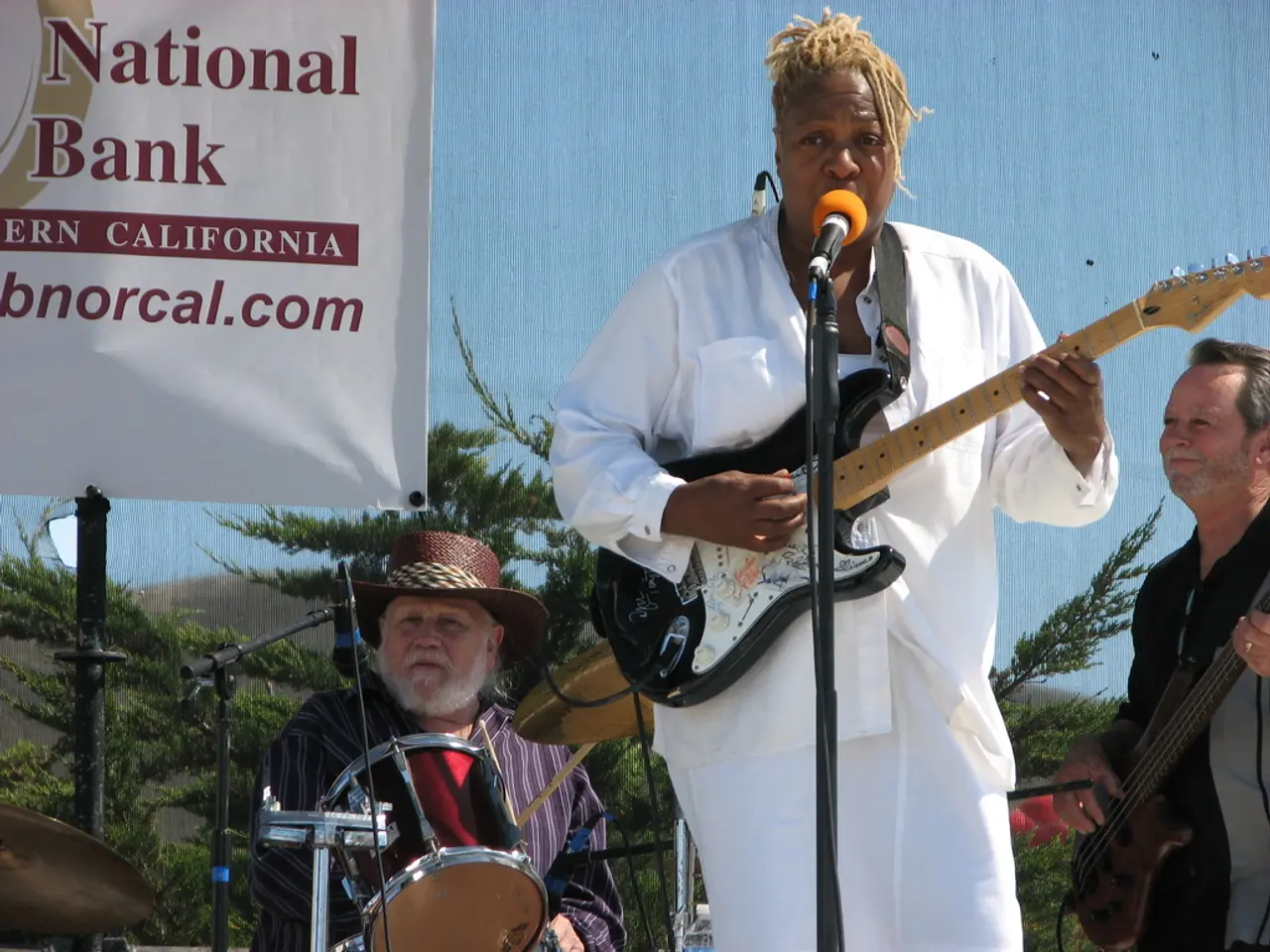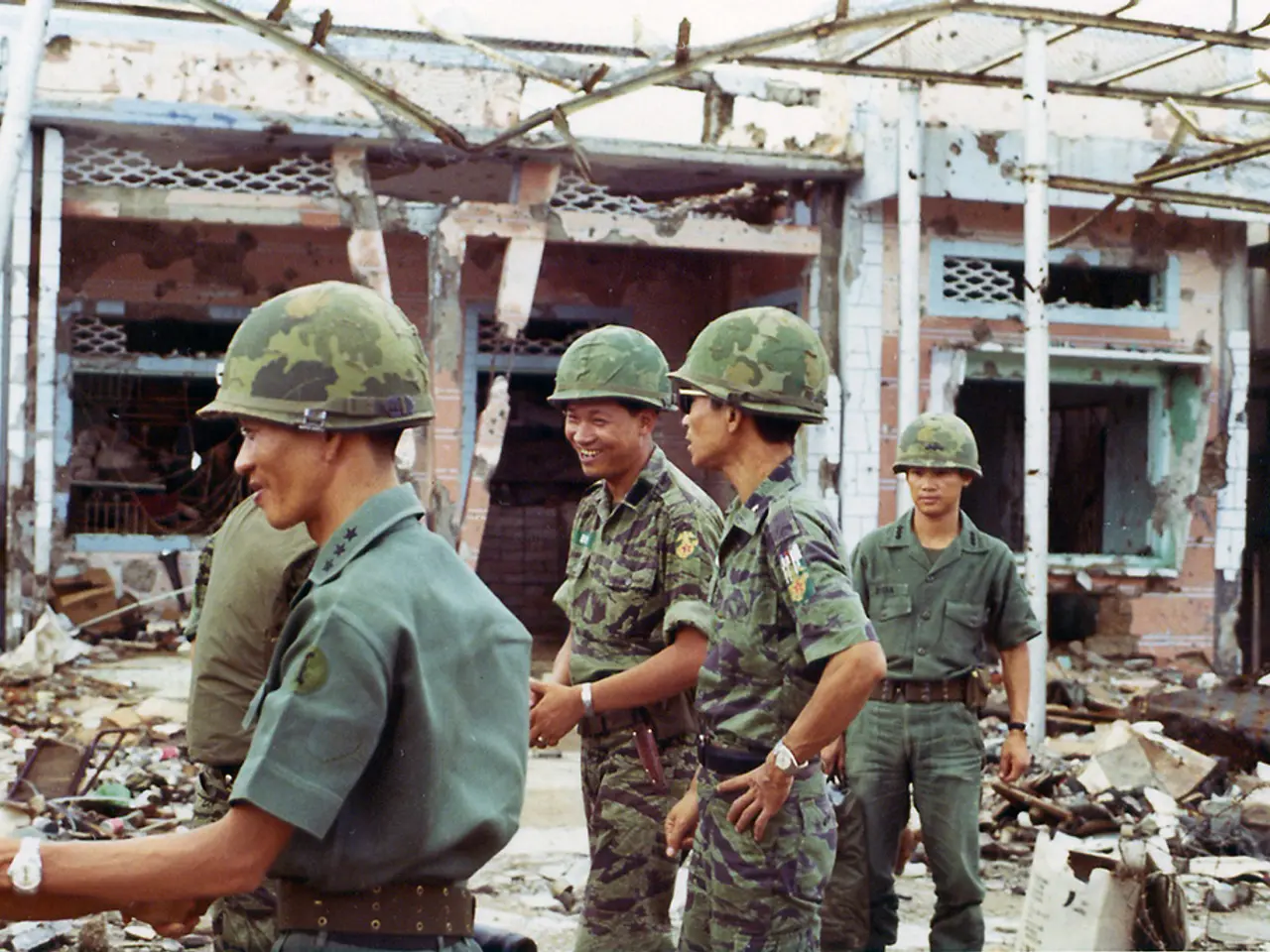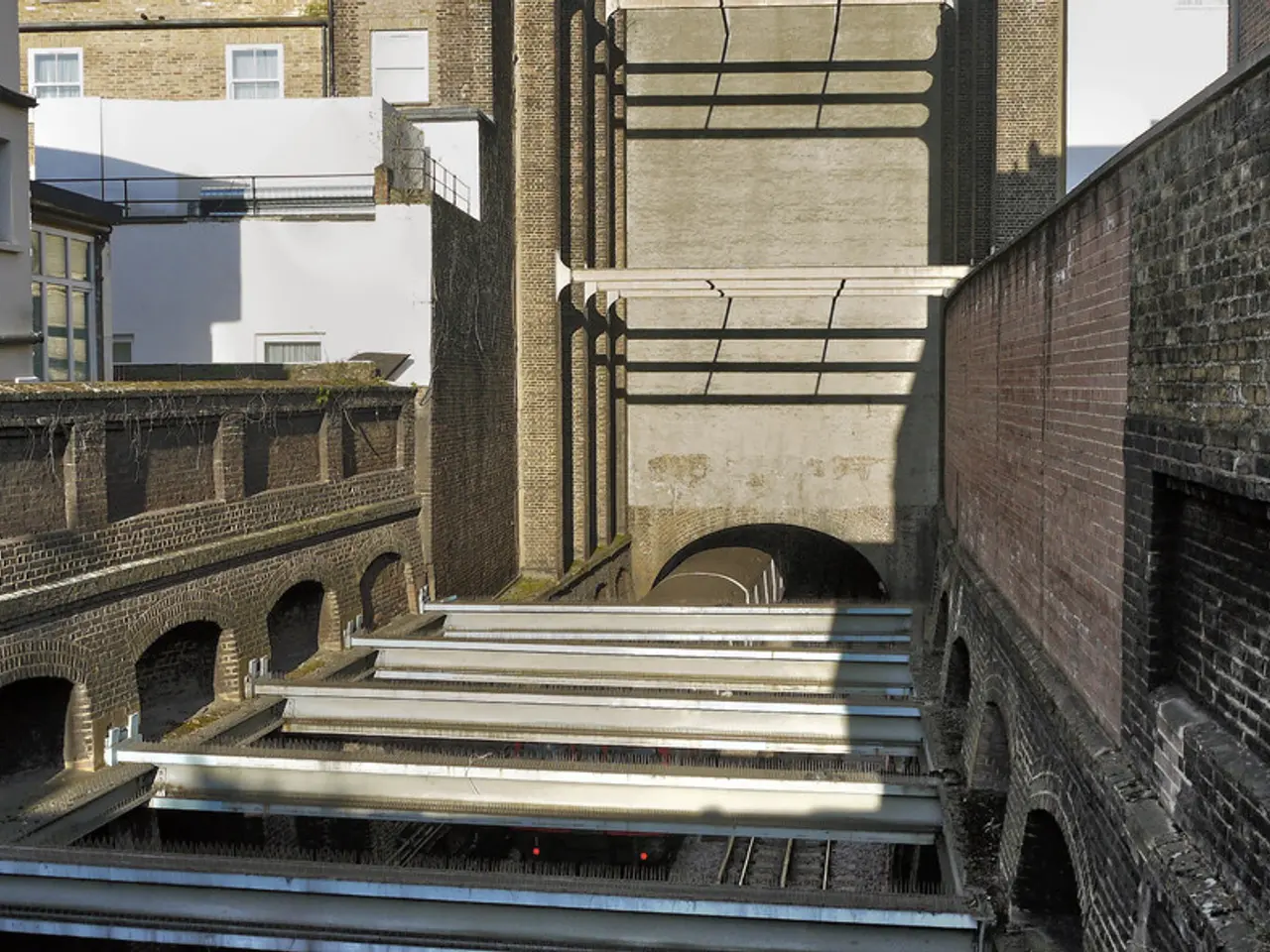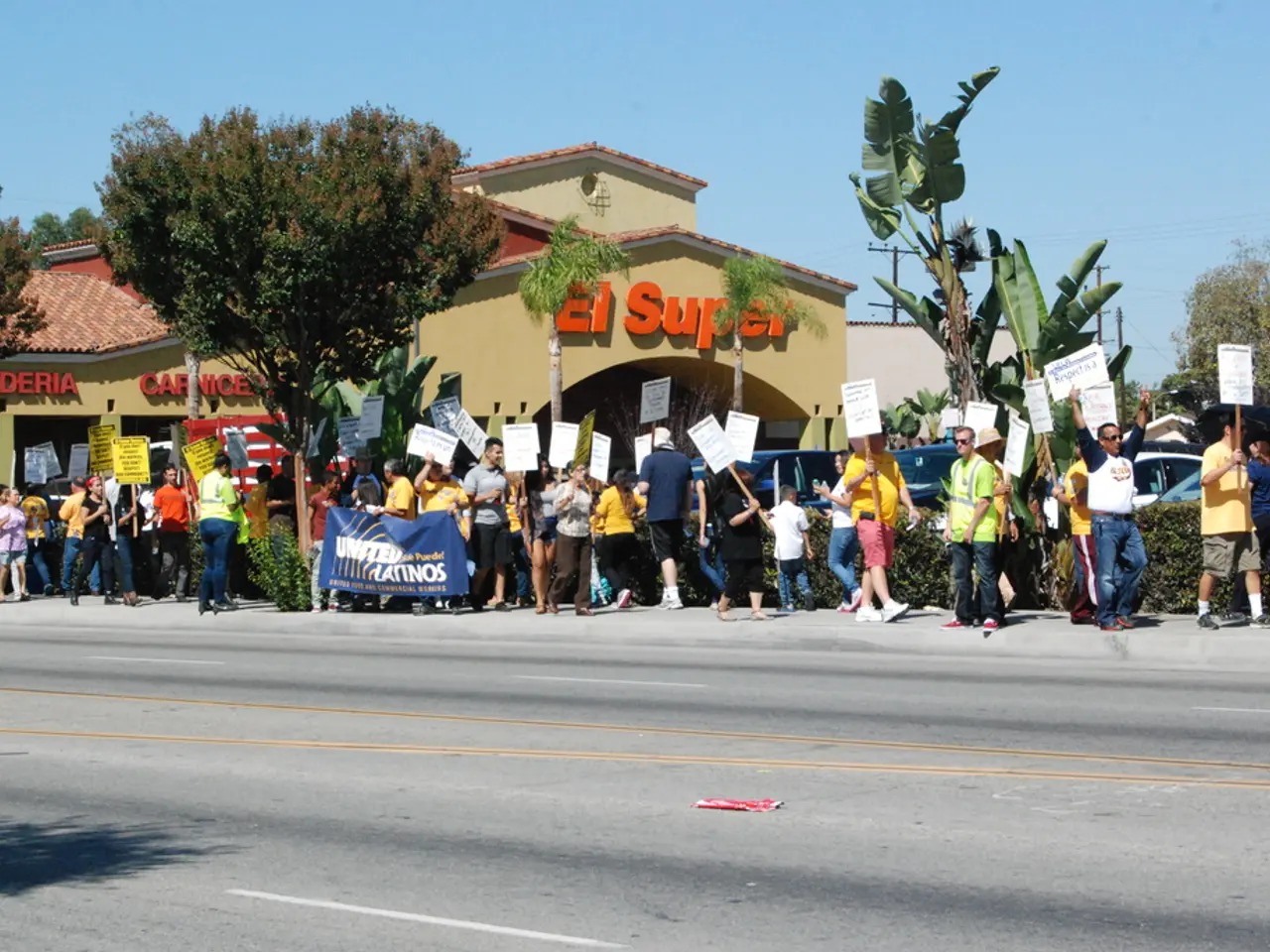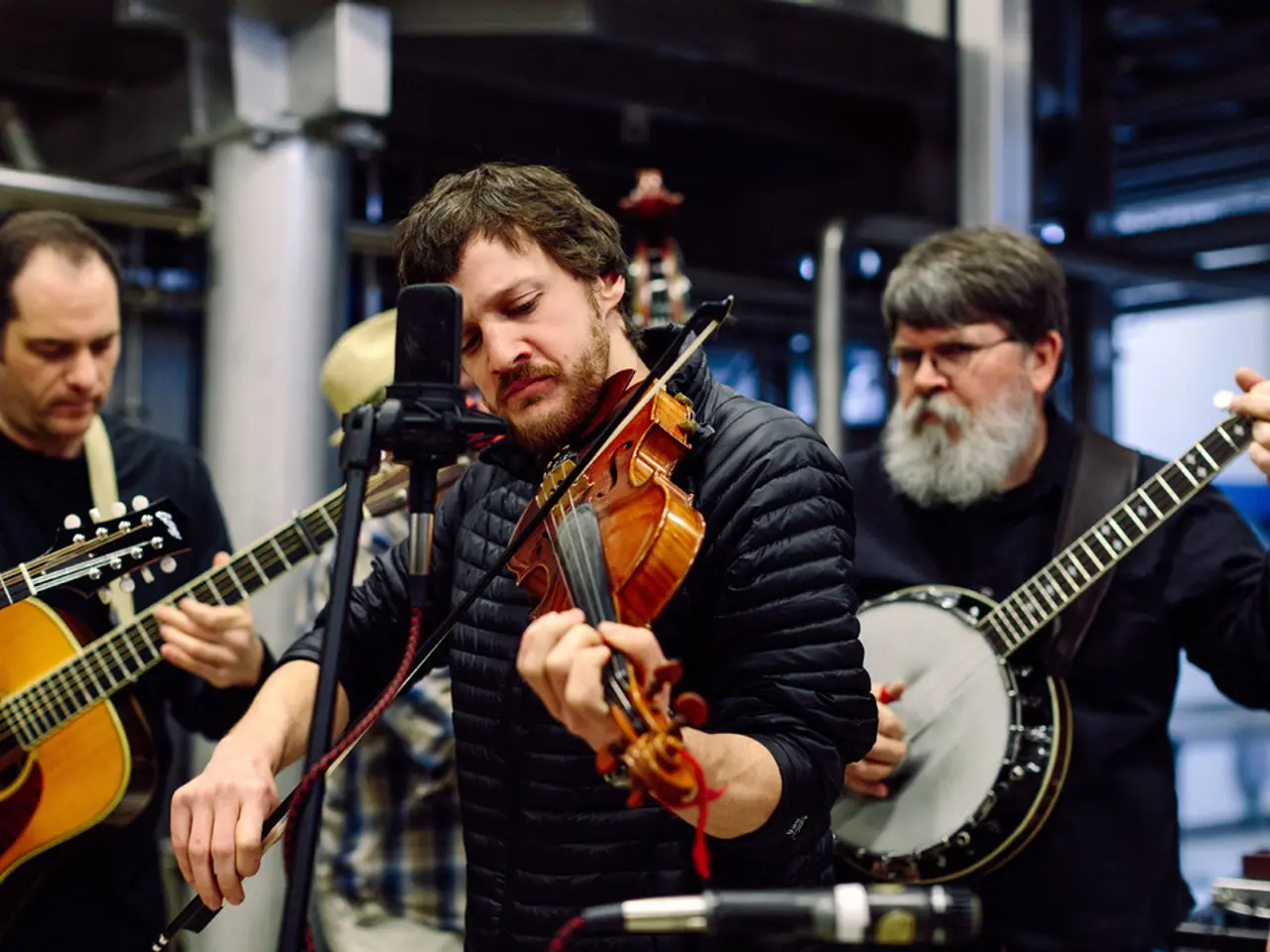American-resident Tunisian musician face arrest in Los Angeles following decade-long residence, as expressed by his medical professional spouse.
In the heart of the United States, the Trump administration's aggressive immigration policies have been causing a stir. The crackdown, characterised by intensified enforcement actions, restrictive policies on both legal and unauthorised immigrants, and a significant reduction in access to federally funded services for immigrants, is reshaping the nation's landscape.
Legal permanent residents and asylum-seekers are feeling the brunt of these policies. They face diminished legal protections and reduced access to basic services, including healthcare, early childhood education, and nutritional support programs. The administration's recent policy changes have reversed decades-old practices by limiting federally funded services even for some authorized immigrants, including asylees, refugees, and DACA recipients.
This intensifies fear within immigrant communities and increases vulnerability. Enforcement has intensified with expanded ICE raids, including targeting non-criminals and immigrants complying with legal processes. Immigration raids in Southern California have spread fear among the Latino population, and even in Democratic-run cities like Los Angeles and New York.
At the state level, numerous Republican-led states have enacted strict immigration laws that increase policing of immigrants, criminalize assistance to undocumented individuals, and restrict voting and ID cards for noncitizens. These laws further complicate the situation for immigrants, including legal residents and asylum-seekers, by fostering an environment of exclusion and increased federal-state cooperation in immigration enforcement.
The situation is personal for Dr. Wafaa Alrashid, the Utah-born chief medical officer at Huntington Hospital. Her husband, Rami Othmane, a Tunisian singer and classical musician who has performed across Southern California for years, was arrested during immigration raids. Rami's bail bond hearing is scheduled for Tuesday. His arrest has not only shaken Dr. Alrashid but has also brought together musicians and activists in a rally outside the U.S. Immigration and Customs Enforcement (ICE) facility in Los Angeles.
Rami's fellow musicians, understanding the power of music in challenging oppressive systems, often play Spanish-language music at rallies. During the rally for Rami, they performed classical Arabic music, an act of resistance according to Pablo Alvarado, co-executive director of the National Day Laborer Organizing Network.
The conditions at the ICE facility where Rami is being held are concerning. Reports suggest freezing cold rooms, lack of beds, pillows, blankets, soap, toothbrushes, and toothpaste, and open bathrooms. Rami's left leg is swollen, and he has had a procedural hearing on Thursday where the judge verified his immigration status.
This assessment reflects the situation as of mid-2025, illustrating the broad and deep implications of the Trump administration's aggressive immigration policies. The situation is not just a numbers game; it's about the lives of individuals like Rami Othmane, legal permanent residents ensnared in the administration's crackdown on illegal immigration. It's about the fear and vulnerability that permeate immigrant communities. And it's about the power of music as a tool for resistance and solidarity in challenging times.
The court is set to hear Rami Othmane's bail bond hearing on Tuesday, following his arrest during immigration raids in Los Angeles. Media outlets across the country have been reporting on this case, highlighting the community's protests and calls for justice. In Toronto and beyond, cultural discussions about law and politics have included general-news segments on crime-and-justice, focusing on the Trump administration's aggressive immigration policies and their impact on individuals like Rami. The news of Rami's arrest has not only stirred up conversations within the community but also fostered a sense of solidarity, with activists and artists rallying in support. Despite the struggles faced by Rami and countless others, music continues to serve as a form of resistance, with performers using it as a tool to challenge oppressive systems and stand in unity.
